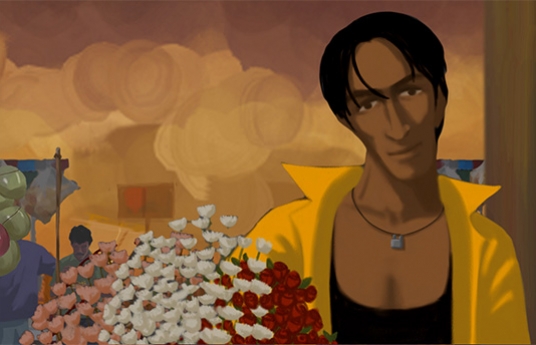Seven Films Supported by the Doha Film Institute Selected to 76th Venice International Film Festival
Aug 26, 2019

- DFI-backed films “Bombay Rose” and “Sanctorum” to open and close the Critics Week Programme respectively
- Film selection includes five by Arab filmmakers who represent exciting new voices in world cinema
Doha, Qatar – 21 August 2019: Seven films supported by the Doha Film Institute (DFI) have been officially selected to screen at the longest-running film event in the world, the 2019 Venice International Film Festival, from 28 August to 7 September.
The diverse line-up of DFI-supported films selected to screen at the festival comprises exciting works from emerging and established filmmakers – five from the Arab world, one from India, and one from Mexico. The films are all feature narratives, including one animation.
DFI’s Chief Executive Officer Fatma Hassan Alremaihi said, “It is a great honour for the Doha Film Institute that films we supported gain recognition at some of the world’s leading film events. These seven diverse and exciting films shine a light on powerful stories from the Arab world and beyond. Our grants programme is dedicated to supporting new cinematic talent and there is no doubt that these films are among the most anticipated projects to emerge this year. Their Venice debut will mark the beginning of an exciting journey for all these films and I congratulate the teams behind them on their inclusion at this prestigious festival.”
“A Son” (Tunisia, France, Lebanon, Qatar) by Mehdi Barsaoui – has been selected to the Official Orizzonti section of the festival, which is an international competition dedicated to films that represent the latest aesthetic and expressive trends in global cinema. The film follows the story of a wealthy Tunisian family during an armed ambush of their car, prompting buried family truths to resurface.
Gitanjali Rao’s “Bombay Rose” (India, France, UK, Qatar), will open the festival’s prestigious Critics Week Programme, which will be closed by Joshua Gill’s “Sanctorum” (Mexico, Dominican Republic, Qatar). Bombay Rose, painted frame by frame, is an animated love story set on the streets of the eponymous city, while Sanctorum presents a wartime tale of a child’s spiritual and magical quest for his disappeared mother in a small town racked between the army and drug traffickers.
Other titles in the Critics Week programme include Shahad Ameen’s “Scales” (Saudi Arabia, UAE, Iraq, Qatar) that tells the story of a young girl Hayat who lives in a dystopian landscape and overturns her village’s tradition of sacrificing girls to mysterious creatures living in close by waters and “All This Victory” by Ahmad Ghossein (Lebanon, France, Qatar), a dark comedy that chronicles the lives of five people trying to escape the bombing in a small village in the south of Lebanon, during the last days of the July War.
“You Will Die At Twenty” by Amjad Abu Alala (Sudan, France, Germany, Norway, Egypt, Qatar) premieres in the parallel programme Venice Days, and takes a poignant look at the life of Muzamel, a Sudanese boy cursed by a Dervish prophecy that he will die at the age of twenty, and how an old cinema projector opens a window to a whole new world for him.
Premiering in the Venice Production Bridge, “Alam, The Flag” by Firas Khoury (Palestine, France, Qatar) examines the awakening of Palestinian student Tamer’s political consciousness under the influence of his classmate Maysaa as they struggle to commemorate the Nakba.
The Venice Film Festival, which runs 28 August to 7 September, is organised by La Biennale di Venezia and recognised by the International Federation of Film Producers Association. The seventy-sixth edition in 2019 continues to work towards the festival’s aims to raise awareness and promote international cinema in all its forms – as art, entertainment and industry – in a spirit of freedom and dialogue. The festival also organises retrospectives and tributes to help promote a better understanding of cinematic history.